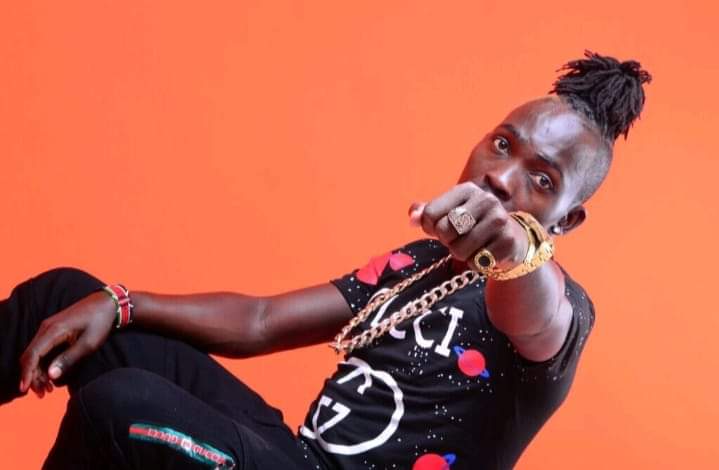Lal Daggy has proved that music is in a world of its own, possessing a force and language we can all understand – even those who cannot hear. Beverline Timanoi reports
Douglas Munyendo lost his hearing ability due to an illness that struck at the tender age of five years. His mother left him and his father remarried, and all these events meant that his childhood was no walk in the park. Whereas his stepmother treated him with disdain due to his disability, his father did not give up on him. He enrolled the young boy in a special school, Ouderaa School for the Deaf in Bondo in the former Nyanza Province.
Popularly known as Lal Daggy, Munyendo is the founder of Deaf Hands Artists (DHA), an entertainment group that nurtures the deaf artist community in Kenya. He is currently signed by Taji Music, a recording label in Kitengela town in Kajiado.
From an early age, Lal Daggy was fascinated by musicians such as Lil Wayne, 50 Cent, and Akon. Having no television set at home, he used to sneak to the local shopping centre to watch music videos. His family always encouraged him to follow his visible passion for music, despite everyone else around him discouraging him. Many considered it impossible for the deaf to make it in music. However, he ignored everyone and followed his love for music.
‘While in school, I could not participate in music clubs because of my condition. However, I always found my way to attend the festivals and despite not hearing the lyrics, I could easily comprehend what the beats were all about from the musicians’ movements as they performed,” says Lal Daggy.
After high school, he enrolled in a local college for IT certification, where he only studied for a year before leaving for a job as a porter for a bottled water company. While there, he saved money hoping one day to record music. He did not work for long and left his job for a carwash business in Dandora slums. In Dandora, he lived in a company of rude boys and drug addicts who almost influenced him into their lifestyle.
He continued saving the little cash he could while looking for a recording studio. Even though he did not get an opportunity to record, he landed a job at a private artist hall in Dandora slums to teach the youth how to dance. The opportunity reunited him with his former high school friends, who introduced him to Sarakasi Dome Dance Arena in Ngara, Nairobi. At Sarakasi, he learnt about music, performance, and dance at his deaf capacity.
While there, he also met two renowned artists in Kenya — Nonini and Jaguar — who had a vision of nurturing deaf musicians and created an entertainment company for the deaf. They took Lal Daggy in and introduced him, together with his friends, to other musicians and events in Nairobi. All this exposure helped him learn a lot about the music industry.
Having never recorded music, his breakthrough came when he met Anthony Ngendo of Taji Music. Anthony had never worked with a deaf rapper before then, but could not resist the talent he saw in the young man. “Lal Daggy challenged me because he was so talented and when he brought his lyrics to me, I had to step up and learn sign language in order to understand his culture. We started working together and produced his hit song, “Crime voiced” by Tony Mikiki, which attained great viewership and even got Lal Daggy go to countries like South Africa to perform,” says Anthony.
Lal Daggy has proved that music is in a world of its own, possessing a force and language we can all understand. Being deaf does not lock him out of this world, nor stop him from speaking that language of love. He easily connects with his audience with gestures using his face, hands, arms, and body. He has performed in many events countrywide. In 2017, he won the Malaika Tribute Award that celebrates remarkable talent for people living with disabilities as the best male artist.
“I want to be a role model for every disabled child in Kenya. I want them to be inspired by what I do and learn that disability is not inability, and that deafness, especially, is not inability. Disability can occur to anyone at any time. A majority of people do not support us because of our condition. I want to nurture talent starting with the schools of the deaf across Kajiado County, and into the whole country,” says Lal Daggy.
